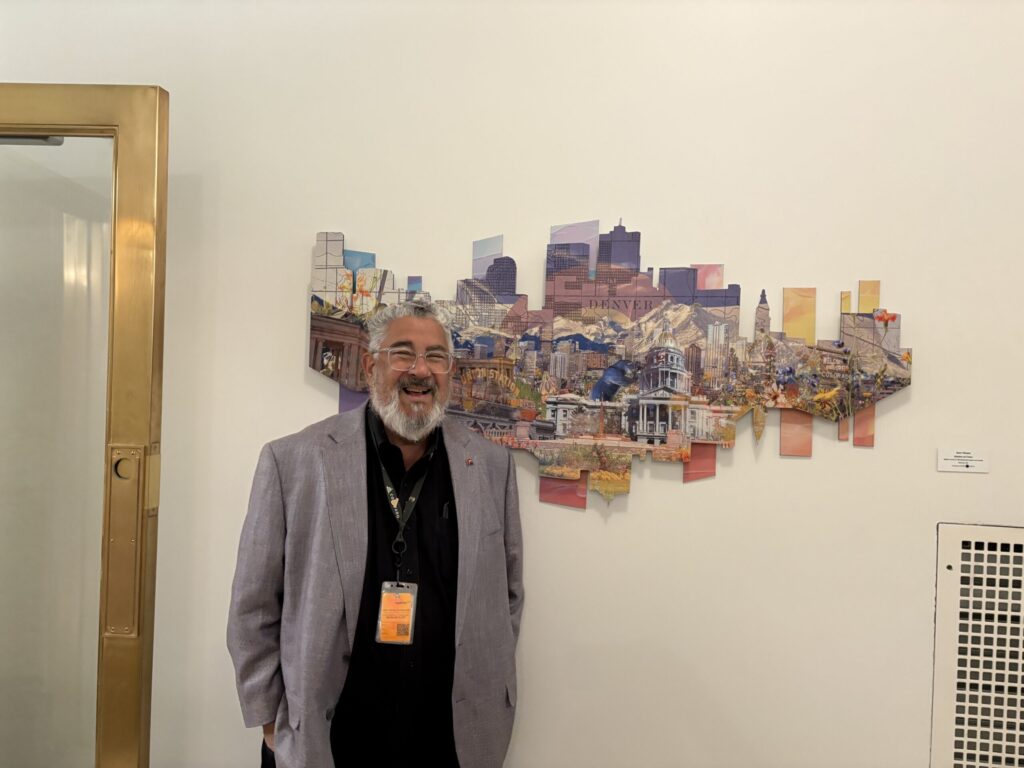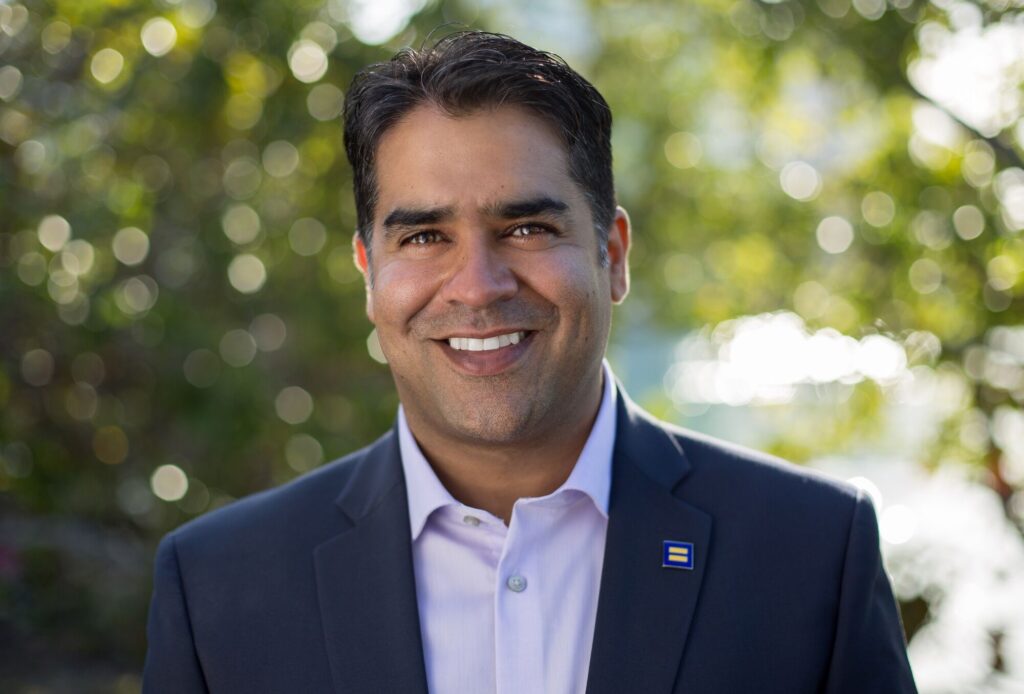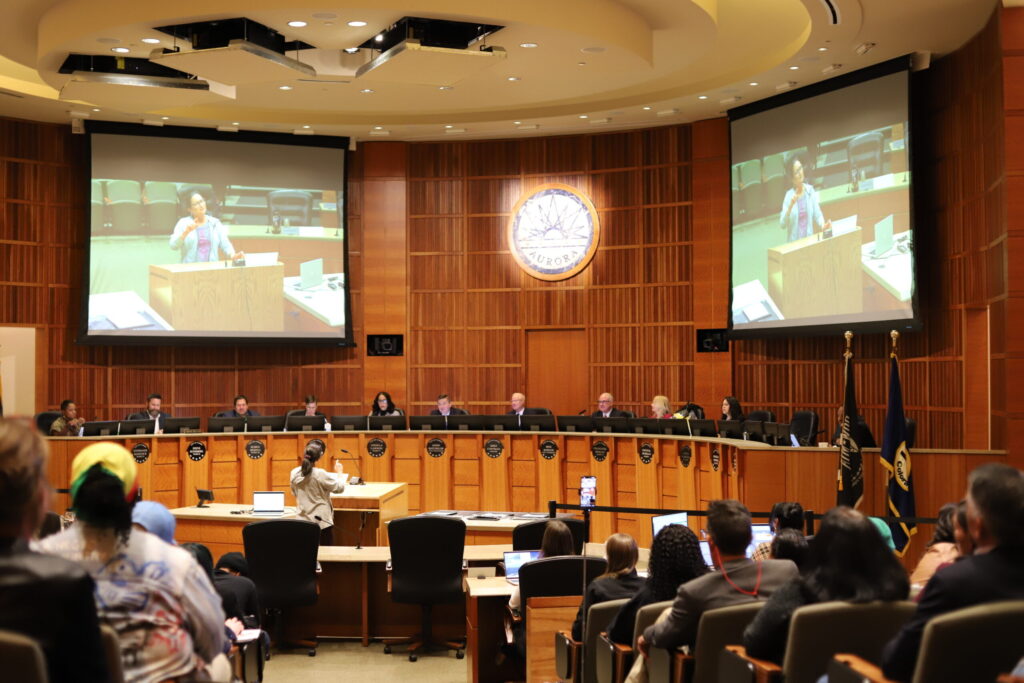UPDATE: Flick involving Hick is at center of court case
[Updated 9-25-14 with statement from Attorney Ted Olson regarding Judge Jackson’s 9-22-14 decision.]
“The Supreme Court has repeatedly ruled that the First Amendment prohibits the government from discriminating among speakers based on their status, viewpoint, identity, or message. But Colorado is engaging in precisely such discrimination by requiring Citizens United to comply with burdensome disclosure requirements as a condition of disseminating its documentary film, while exempting ‘institutional,’ ‘traditional,’ or ‘establishment’ publishers and broadcasters from those requirements. The First Amendment protects the right of Citizens United to engage in political expression on the same terms as all other speakers—including the New York Times, National Public Radio, and local television stations. This is blatant discrimination against the speaker who does not own a broadcasting facility or a printing press. The small, the upstart, the challenger, the little guy, are all burdened while the mainstream, established, entrenched, more powerful voices are relieved of these obligations. The pamphleteers, the Patrick Henrys and Thomas Paines, who launched the Revolution who founded this country, would be aghast.”
[Updated 9-23-14 to reflect Federal Judge R. Brooke Jackson’s decision on 9-22-14.]
Federal Judge R. Brooke Jackson denied the preliminary injunction sought by Citizens United blocking enforcement of Colorado’s financial disclosure requirements for its soon-to-be-released documentary, Rocky Mountain Heist, on Monday. Injunctions are frequently granted or denied in brief decisions, but Jackson penned a 22-page denial that establishes a record for what will likely prove a lengthy legal process ending at the U.S. Supreme Court. Finding in favor of the Secretary of State, who was the defendant in this petition, Jackson’s order summarizes the issues succinctly: “The case presented today is rather straightforward. Citizens United argues that its free speech rights are violated when the law requires it to disclose its donors while effectively exempting traditional print media and broadcasters from the same requirement. It contends that Colorado’s reporting and disclosure exemptions are a form of content- or viewpoint-based discrimination compelling the invalidation of the entire disclosure scheme. I am not convinced and therefore deny the plaintiff’s motion for a preliminary injunction.”
Jackson’s order includes a meticulous recital of the pertinent Colorado constitutional and statutory disclosure provisions, followed by a lengthy discussion of legal standards. He commences this analysis with a reference to the original Citizens United suit prompted by the documentary, Hillary: The Movie. “The Supreme Court was forced to balance two interests when it decided the pivotal case Citizens United vs. Federal Election Commission, the interest of political speakers and the interest of their audience, the electorate. As relevant to the present case, the Court came to the conclusion that while “(t)he First Amendment protects political speech,” disclosure “permits citizens and shareholders to react to the speech of corporate entities in a proper way.” He goes on to point out that the Supreme Court also found disclosure enables voters to make informed decisions and created no ‘constitutional impediment’ to Citizen United’s ability to advertise their movie. Jackson’s order also reveals the production budget for Rocky Mountain Heist was $450,000 with an additional $225,000 slated for promotion and advertising.
In examining the likelihood that Citizens United might prevail on the merits, the Judge observed, “Citizens United frames its arguments as a challenge to laws burdening speech on the basis of the speaker’s identity, claiming that the state is effectively picking winners and losers in the battle of ideas. The State is doing no such thing. First, the disclosure regime distinguishes based on the form of speech, not on the identity of the speaker. Second, even acknowledging that the effect of the law is commonly to exempt press entities from Colorado’s reporting requirements, nothing suggests that the intent (or effect) is to discriminate on the basis of content or viewpoint.”
Aligning himself with the Secretary of State, Jackson addressed the question of equity by noting that, “…the defendants point out that the law was enacted to further a public interest — transparency in public speech — and that enjoining the enforcement of the scheme would harm the entire electorate of Colorado, who may not be able to make informed choices come election day. The plaintiff would like the court to ignore the public’s motivations in passing the disclosure laws and the benefits they entail, but I cannot do that. Amendment 27 was passed by a 2-1 margin in 2002. Voters must have seen a significant benefit… in memorializing it in the State constitution.”
Jackson, stated that, “The marketplace of ideas does not function well if listeners are unable to discern the private interests behind speech when determining how much weight to afford it.” Referencing previous federal and Supreme Court decisions supportive of disclosure, he closed his ruling with, “Today, Citizens United comes before the Court hoping to unravel forty years of precedent by reframing the issue as one of content and viewpoint discrimination. The Court is not persuaded.”
___________________________________________________________________
A federal court case involving the financial disclosure of Citizens United could alter the election landscape in Colorado this year, as well as the viewing habits of potential voters. At dispute is whether Citizens United will be granted an injunction against the Colorado Secretary of State, which in the past has ruled that the organization must comply with Colorado’s Amendment 27 disclosure laws, passed in 2002, before it airs a political documentary that allegedly casts a critical eye on Gov. John Hickenlooper and, perhaps, a few glancing shots at U.S. Senator Mark Udall, both of whom are seeking re-election in November.
Attorney Ted Olson, representing Citizens United, argued that the group should not have to comply with the financial disclosure provisions in the Colorado constitution which deal with overtly political electioneering communications during the months immediately before an election.
The documentary, titled Rocky Mountain Heist, is scheduled for release early in October.
Olson, who served as Solicitor General during George W. Bush’s first term, represented the Republican Party during Gore v. Bush, persuading the Supreme Court to shut down a Florida recount in 2000. He also served as an Assistant Attorney General in the Reagan Administration representing the President during the Iran-Contra scandals. Most recently he joined with his Democratic adversary, David Boies, in seeking to overturn Proposition 8 outlawing gay marriage in California. Their successful legal challenge is recounted in a jointly written book, Redeeming the Dream: The Case for Marriage Equality, just out in June of this year.
However Judge R. Brooke Jackson rules in the longstanding battle, the outcome is likely to provide an excellent test case before the U. S. Supreme Court where it is likely to land upon an expected appeal.
Olson’s courtroom interrogatory skills evidently moved Judge Jackson, who stepped down from the bench at the close of a three-hour hearing to shake his hand and remark that, “…your reputation is well deserved.” Blessed with a commanding baritone, Olson commenced his prepared remarks by noting that his request for injunctive relief was “…about the First Amendment, the most important and first enumerated of the Bill of Rights.” As he moved into higher gear, charging it was “…impossible to defend the indefensible,” and that it was equally improper for government to “…pick winners and losers in the battle of ideas,” Jackson surprisingly interrupted him. Having already perused voluminous affidavits and filings from both sides, as well as petitions from potential interveners, the Judge asked a simple question, “Are we here because Citizens United doesn’t want to file a report, or because they don’t want to disclose their donors?”
Olson pointed out that the media exception included in Amendment 27 treats different speakers differently, permitting traditional media to express its opinions, even to advocate for political action on their editorial pages, while organizations like Citizens United are judged not to be trustworthy simply because they are “…overtly ideological.” Therefore, the state’s disclosure requirements unfairly burden only certain types of speakers while exempting broadcasters and periodicals, he emphasized.
Olson also opined that such burdens necessarily limit “…rigorous and robust speech in the marketplace of ideas.” Jackson responded by asking, “Aren’t voters entitled to know who is paying for these messages?” Olson returned to his argument regarding disparate treatment, pointing out that political speech is the most important of all our freedoms. He noted that the Federal Election Commission reached a formal determination that Citizens United is a communications outlet indiscernible from the mainstream media. He then offered an “equal protection” argument, suggesting that discrimination between speakers can readily “…become a pretext for discrimination on the basis of point-of-view.
The defendant in the case is Colorado Secretary of State Scott Gessler, whose attorneys proceeded by calling two expert witnesses. First in the box was Dr. Seth Masket, dean of the University of Denver’s political science department, whose professional research has focused on the electoral impact of disclosure requirements. He teaches a class that covers campaigns and elections and has written two books, No Middle Ground and another titled The Inevitable Party, which will be published in September of 2015. The major thrust of his testimony was that disclosure protocols are the main source of transparency for voters in determining the validity of electioneering messages.
Masket acknowledged that 95 percent of voters never directly access these reports, but he has found that “information entrepreneurs” serve to adequately disseminate this information. He also pointed out that disclosure often protects donors from pressure applied by candidates, while eliminating appeals to potentially embarrassing donors because their names will have to be reported. He has also determined that financial disclosure does not appear to dampen the rapidly growing cost of campaigning, where federal races have been increasing in cost 35 percent per election cycle as legislative races have increased by 19 percent during the past two decades. He concluded by observing that disclosure has proven largely non-controversial.
Olson asked Masket what he knew about video, then inquired whether he had watched any of the 23 Citizens United documentaries. When Masket responded that he had only viewed Hillary: The Movie several years ago, Olson demanded to know, as an expert witness, why he hadn’t better prepared for his appearance. Olson asked Masket whether the professor discusses active politicians in his book, or candidates who may run for office in 2016. When Masket informed him that it did, Olson queried the law professor about whether he planned to file disclosure reports with the Colorado Secretary of State since the textbook would be up for sale during an election cycle. Masket protested that he was not attempting to influence voters with his book. Olson kept drilling, insisting on finding out whether so-called information entrepreneurs shouldn’t also file disclosure reports since many of them are bloggers writing during the run up to election day.
The Secretary’s second witness was Dr. Jason Shepard from California State University’s Fullerton campus. A former reporter, he teaches journalism law at the University and several nearby colleges. His research specialty is election advertising and techniques for persuading political choices. He also has written about who qualifies as a journalist in a rapidly evolving media environment. He emphasized that journalism has its own historical set of behavioral norms, including transparency as a central ethical standard. He pointed out that the Citizens United decision by the U.S. Supreme Court specifically excluded any judgment on disclosure requirements. He stated that his recent re-viewing of Hillary: The Movie had confirmed his recollection of it as negative political advertising. And, that as a consequence, it did not serve a legitimate press purpose. He then curled into a defensive ball to withstand Olson’s imminent cross-examination, which included questions about other Citizensd United projects.
Shepard was also interrogated about editorial page activism and whether it is an appropriate press function, but emerged largely unscathed as Olson grumbled that his testimony advocated differential treatment depending on the identity of the speaker.
A Colorado Democratic Party petition to participate was granted by Jackson over the objection of the Secretary of State’s office. Denver attorney Martha Tierney, partner and chair of the government relations group at Heizer | Paul LLP, pointed out that the definitional issues in dispute have never been adjudicated in state courts. She suggested the Judge could refer the dispute to a Colorado court for interpretation under the “abstention doctrine.”
In closing arguments, the Secretary of State’s attorneys noted Citizens United has not claimed that Rocky Mountain Heist will be either delayed or blocked from distribution because of Colorado’s disclosure requirements. They agreed with the Democratic Party that only contributors specifically solicited for this proposed production were required to be itemized in disclosure reports. In other words, donors who only provide general fund support to Citizens United need never be identified.
Olson restated his objections to what he labeled “…discriminatory disclosure requirements,” that presented “…irreparable injury” to his client, dismissing any distinction based on the purpose of donations as “…a slippery slope.” The Judge closed the hearing with the observation that he had much to consider, although a quick ruling is expected.
At the conclusion of the hearing a number of attorneys expressed their opinion that the Citizens United documentary is not so much rooted in an animus towards Colorado’s Governor as it is in the fact that the state’s disclosure provisions will provide an excellent test case before the U. S. Supreme Court. Whatever ruling Jackson makes, no one thinks Colorado has heard the last from Citizens United.
“Make no mistake,” stated Tierney, “Citizens United and Ted Olson are intent on repealing disclosure laws everywhere.” And, should they succeed, their legal campaign will have been launched on the 9th floor of the Arraj Federal Court House in Denver.
Colorado Politics Must-Reads:












